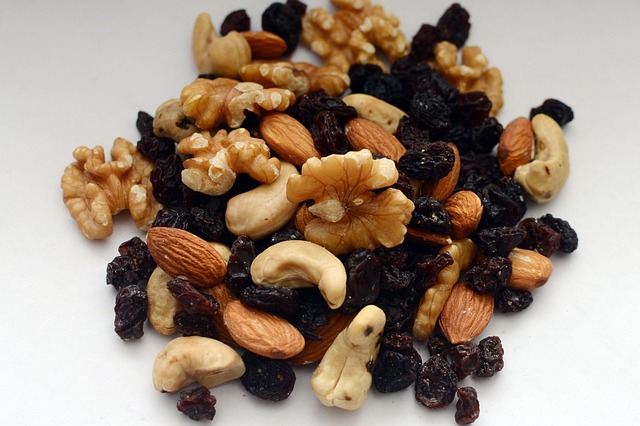-By: Bhavisha Changrani
In today’s fast-paced world, where stressors abound and pressures seem never-ending, feelings of depression can easily creep into our lives. While seeking professional help is crucial for managing severe depression, there are also several natural remedies and lifestyle changes that can complement conventional treatments and promote overall mental well-being. In this article, we’ll explore various home remedies for depression that are backed by research and can be incorporated into daily life.

Regular Exercise
Physical activity is not only beneficial for your body but also for your mind. Regular exercise stimulates the production of endorphins, which are natural mood lifters. Aim for at least 30 minutes of moderate exercise most days of the week. Activities like walking, jogging, yoga, and dancing can all have a positive impact on your mood.
Healthy Diet
What you eat can significantly affect your mood. Consuming a diet rich in fruits, vegetables, whole grains, lean proteins, and healthy fats provides your body with essential nutrients that support brain function and regulate mood. Additionally, omega-3 fatty acids found in fish, flaxseeds, and walnuts have been linked to lower rates of depression.

Adequate Sleep
Quality sleep is essential for mental health. Lack of sleep can exacerbate feelings of depression and anxiety. Aim for 7-9 hours of uninterrupted sleep each night by practicing good sleep hygiene habits such as maintaining a consistent sleep schedule, creating a relaxing bedtime routine, and creating a comfortable sleep environment.

Sunlight Exposure
Sunlight is a natural mood enhancer as it stimulates the production of serotonin, a neurotransmitter that contributes to feelings of happiness and well-being. Try to spend some time outdoors each day, especially during the morning hours, to soak up natural sunlight. If sunlight exposure is limited, consider using a light therapy box to mimic natural sunlight and alleviate symptoms of seasonal affective disorder (SAD).

Mindfulness and Meditation
Mindfulness practices, such as meditation and deep breathing exercises, can help calm the mind and reduce symptoms of depression. Regular meditation has been shown to increase gray matter density in brain regions associated with emotion regulation and self-awareness. Dedicate a few minutes each day to mindfulness exercises to promote mental clarity and emotional resilience.
Herbal Remedies
Certain herbs and supplements have been found to have mood-stabilizing properties. St. John’s Wort, for example, is a popular herbal remedy for mild to moderate depression. However, it’s essential to consult with a healthcare professional before using any herbal supplements, as they may interact with other medications or have adverse effects.
Social Support
Maintaining strong social connections is vital for mental health. Surround yourself with supportive friends and family members who can offer encouragement, companionship, and a listening ear. Participating in group activities or joining support groups can also provide a sense of belonging and reduce feelings of isolation.

Limiting Alcohol and Caffeine
While alcohol and caffeine may provide temporary relief from feelings of depression, they can also exacerbate symptoms in the long run. Limiting or avoiding alcohol and caffeine consumption can help stabilize mood and improve overall mental well-being.
Creative Expression:
Engaging in creative activities such as art, music, writing, or gardening can be therapeutic and uplifting. Creative expression allows you to channel your emotions in a positive way and provides a sense of accomplishment and fulfillment.

Professional Support
While home remedies can be beneficial, it’s essential to seek professional help if you’re struggling with persistent feelings of depression. A mental health professional can provide personalized treatment options, such as therapy or medication, to address your specific needs and support your journey toward recovery.
Why to choose Natural Remedies over medications or pills of depression?
While natural remedies can be beneficial for some individuals in managing symptoms of depression, it’s essential to recognize that they may not always be superior to medications. Both natural remedies and medications have their own advantages and limitations, and the effectiveness of treatment varies from person to person. Here’s why some people may prefer natural remedies over medications for depression:
Fewer Side Effects
One of the primary concerns with antidepressant medications is the potential for side effects. Common side effects may include nausea, weight gain, sexual dysfunction, and drowsiness. Some individuals may prefer natural remedies because they typically have fewer adverse effects, although it’s essential to note that herbal supplements and other natural remedies can still cause side effects and interactions with other medications.
Holistic Approach
Natural remedies often focus on promoting overall well-being and addressing underlying imbalances in the body and mind. Practices such as exercise, mindfulness, and dietary changes not only target symptoms of depression but also contribute to overall health and vitality. This holistic approach may appeal to individuals who prefer a more integrated and balanced approach to mental wellness.
Empowerment and Self-Care
Engaging in natural remedies for depression can empower individuals to take an active role in their own healing process. Practices such as exercise, meditation, and creative expression provide opportunities for self-care and self-expression, fostering a sense of control and agency over one’s mental health. Some people may find this approach more empowering and fulfilling than relying solely on medications.
Personalized Treatment
Natural remedies offer a wide range of options that can be tailored to individual preferences and needs. For example, someone may find relief from depression symptoms through activities like gardening or spending time in nature, while another person may benefit from herbal supplements or dietary changes. This flexibility allows individuals to explore different avenues of treatment and find what works best for them.
Cultural and Philosophical Beliefs
For some individuals, cultural or philosophical beliefs may influence their preference for natural remedies over medications. Traditional healing practices, herbal medicine, and alternative therapies may hold cultural significance and be deeply ingrained in certain belief systems. Choosing natural remedies can align with these beliefs and provide a sense of cultural continuity and connection.
It’s important to emphasize that natural remedies should not replace professional medical treatment for severe or persistent depression. While natural remedies can be effective for mild to moderate depression or as complementary therapies alongside conventional treatment, severe depression often requires comprehensive treatment approaches that may include medication, therapy, and other interventions. Ultimately, the decision to use natural remedies or medications for depression should be made in consultation with a healthcare professional who can provide personalized guidance and support.
Conclusion
In conclusion, managing depression requires a holistic approach that addresses the mind, body, and spirit. By incorporating these natural remedies and lifestyle changes into your daily routine, you can take proactive steps toward improving your mental health and achieving a greater sense of well-being. Remember to be patient and compassionate with yourself as you navigate your path to healing.













